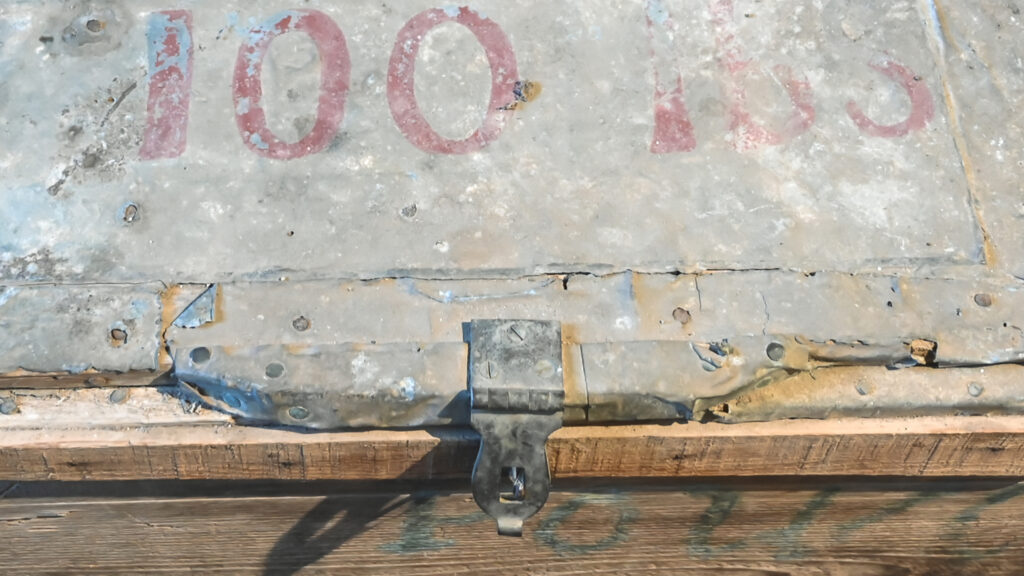
Browsing through nineteenth century newspapers and looking at this wooden box for storing dynamite, you may think that explosives were not handled with the care they demand. However, you would be mistaken. Outside of underground mining, most accidents were due to carelessness or misuse. The invention of dynamite by Alfred Nobel in 1871 changed the […]
Read More…
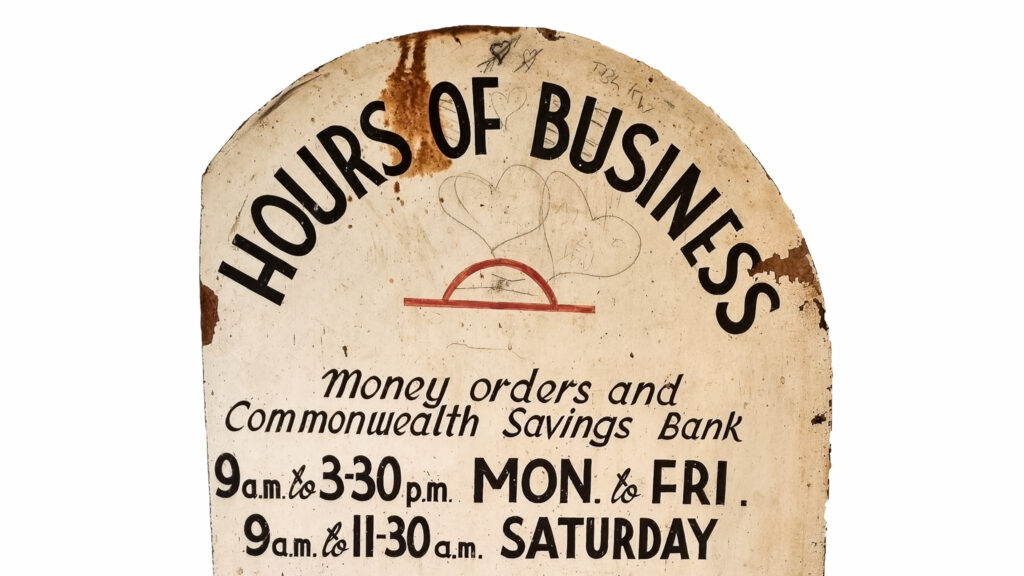
Walking into a modern post office you are faced with a surprising range of goods for sale with items directly related to the postal service usually relegated to the side. This sign from the Rockley Post Office provides us with a different view of the functions and role of the post office. It also reminds […]
Read More…
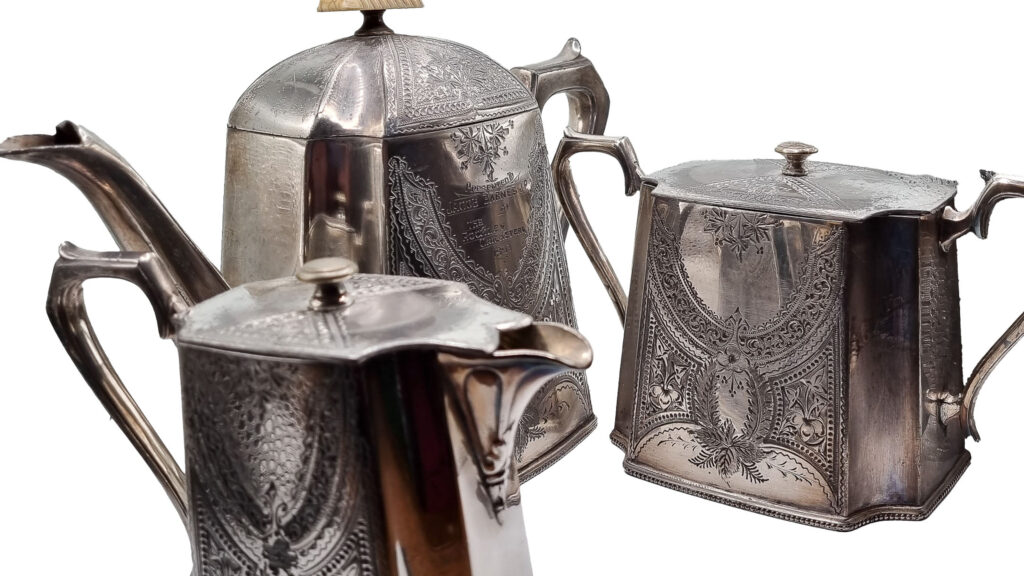
Forget the Chappells, Marshs, Waughs and Lees. The Barnes family were the original cricketing family. The patriarch, Jacob Barnes (1840–1930) the father of Rockley cricket, was a fearsome batter and successful wicket-keeper and he certainly earned this silver tea and coffee service. The service, including an inscribed tray, was presented to Barnes to commemorate his […]
Read More…

When European settlers were marking out parcels of land in Rockley, a Gunter’s chain just like this one would have been used by the surveyors. Measuring sixty-six feet in length and consisting of one hundred links (each 7.92 inches in length and marked off in groups of ten), the chain was attached to a stake […]
Read More…

Old family Bibles sometimes contain a family tree tracing its passage through the generations. This small, more personal Bible was owned by Herbert Stanger Budden (1864–1948) and reveals an entangled and interesting family history. Herbert was the eldest son of Arthur Budden (1832–1922) and Sarah Stanger (1840–1873). The Budden and Stanger families were early white […]
Read More…

Although they may not know it, the Australian Women’s Cricket team owes a debt of gratitude to those who once played with this ball, Mereah Austen (1882–1982), and to J.S. O’Hara (1853–1933). Mereah for showing a sceptical public that girls could play cricket at a high level and O’Hara for his enthusiastic support for ‘The […]
Read More…
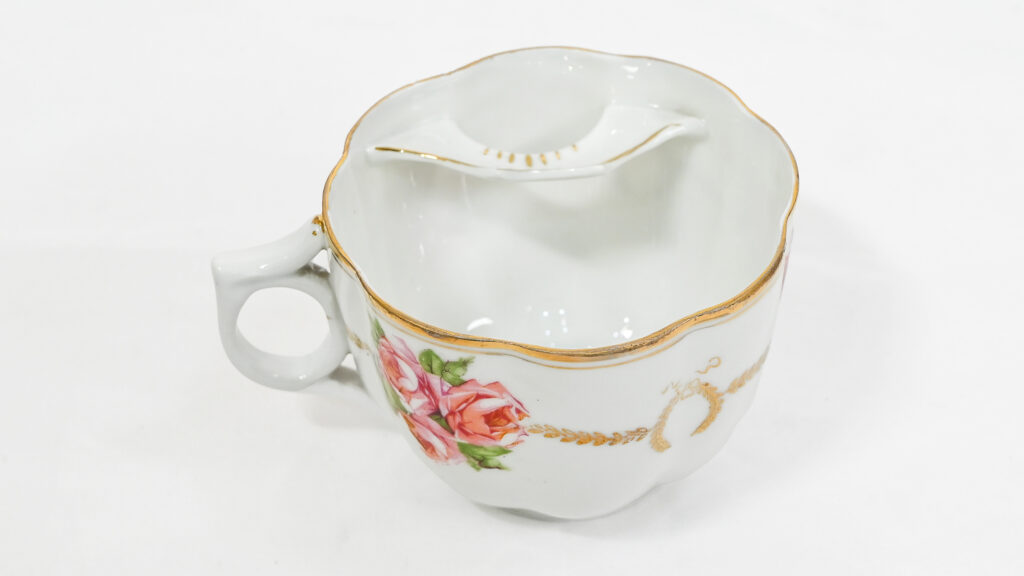
Pencil, walrus, toothbrush or handlebar? This cup protects them all. The porcelain ledge across its rim kept the moustaches of Victorian gentleman from getting wet or stained as they sipped their hot beverages. This highly specialised kind of crockery is said to have been invented in the mid-1860s by the potter Harvey Adams, who clearly […]
Read More…
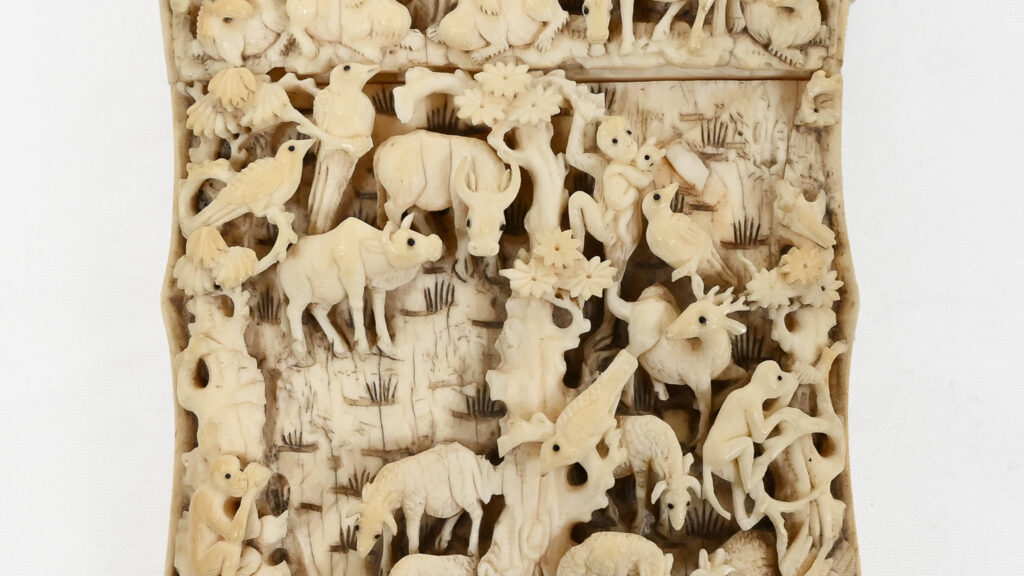
The lady who kept her calling cards in this delicately carved ivory case may have been one of Thomas Arkell’s daughters, from Charlton near Bathurst. She clearly looked after it. Perhaps it was only brought out on the days on which she ‘called’ on her social network. Calling, in the days before telephones, meant visiting […]
Read More…
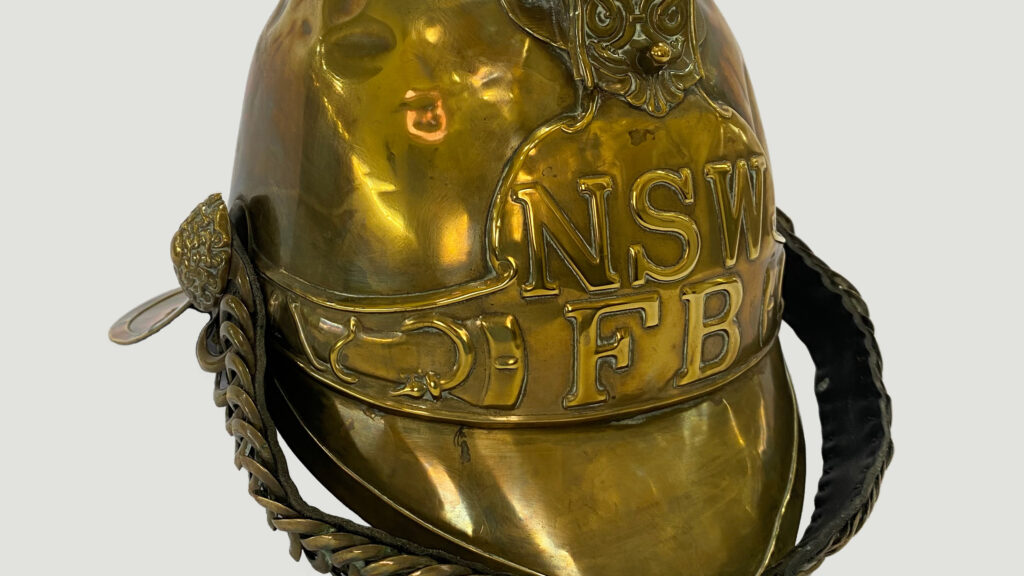
When the shingled roof of the kitchen at Bathurst hospital caught fire in 1878 and destroyed the whole building, the town lamented the fact that it ‘did not posses an efficient trained band ready for duty by day and night.’ At a time when buildings were heated by coal and lit by gas and candles, […]
Read More…
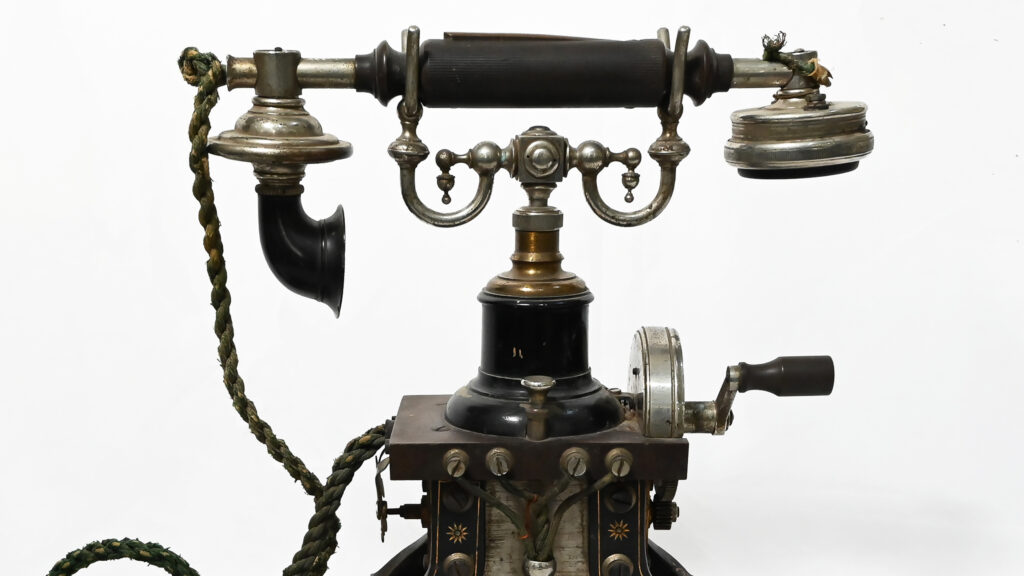
When this telephone was installed at the Bathurst Post Office in 1895, the only place to make it ring was the Bathurst railway station. A single telephone line operated between the two establishments to advise the post office of any mail trains that were running late, until a switchboard of twenty-five lines was installed the […]
Read More…











